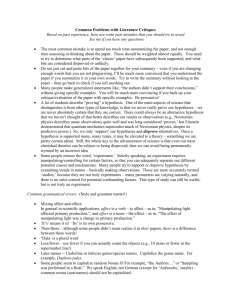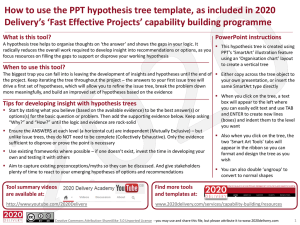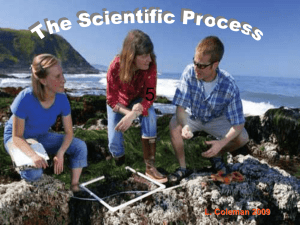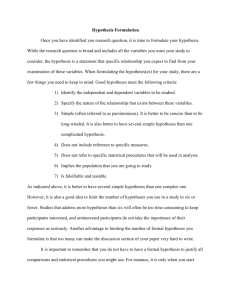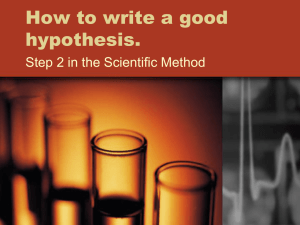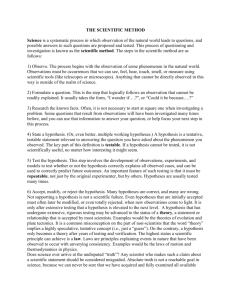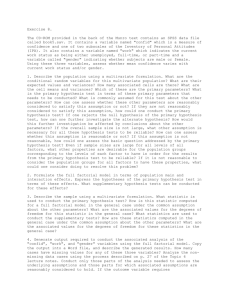Hypothesis
advertisement
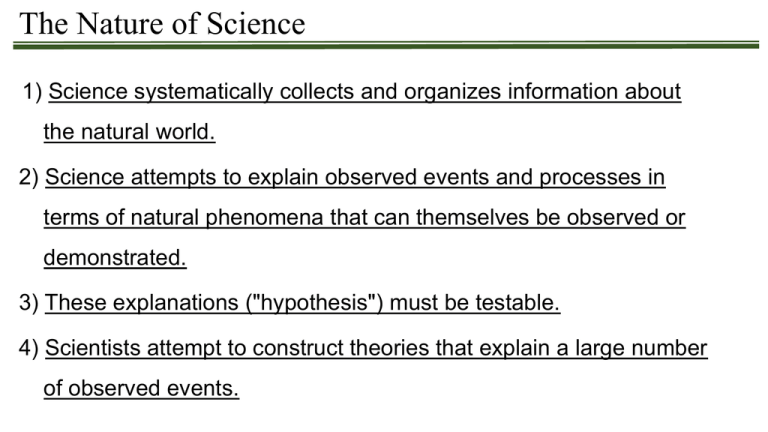
The Nature of Science 1) Science systematically collects and organizes information about the natural world. 2) Science attempts to explain observed events and processes in terms of natural phenomena that can themselves be observed or demonstrated. 3) These explanations ("hypothesis") must be testable. 4) Scientists attempt to construct theories that explain a large number of observed events. The Nature of Science - Falsifiabilty The power of the scientific method lies in “disproof” – falsifiability. • Rutherford used the data collected from X-rays passing through materials to disprove Bohr’s hypothesis that atoms are single spheres of matter. • Kepler used careful observation of the planet’s motion to disprove (1609) that they move in a circle around the sun. They move in an ellipse, not a circle (thus refuting Aristotle & Copernicus). • Galileo (1590) used a variety of experiments to disprove that heavy objects fall faster than lighter ones (thus refuting Aristotle). • Pastuer disproved the theory of Spontaneous Generation (1864) by creating S-shaped neck on flasks that allowed air in, but kept dust out. In Science, explanations, hypotheses and theories should be falsifiable. That is, you should ask yourself, “are there conditions (known or unknown) that would disprove this?” The Difference Between a Hypothesis and a Theory A Hypothesis is a statement regarding a specific set of circumstances. • A tentative assumption made in order to draw out and test its logical or empirical consequences Merriam-Webster • A hypothesis is a specific, testable prediction about what you expect to happen in your study. About.com (Psychology) • A hypothesis (from Greek ὑπόθεσις; plural hypotheses) is a proposed explanation for a phenomenon. The term derives from the Greek, ὑποτιθέναι – hypotithenai meaning "to put under" or "to suppose".[1] For a hypothesis to be put forward as a scientific hypothesis, the scientific method requires that one can test it. – Wikipedia A Theory is much more than an educated guess. It is a coherent body of well-tested hypotheses. A theory is a set of statements that: 1) Are interconnected, and internally consistent. 2) Are based on observable and circumstantial evidence ("the facts"). 3) Explain a wide variety of observations. 4) Have been tested by reference to the observable facts. -Norma Johnson (2007) Science is sometimes reshaped The message of science is not always objective


